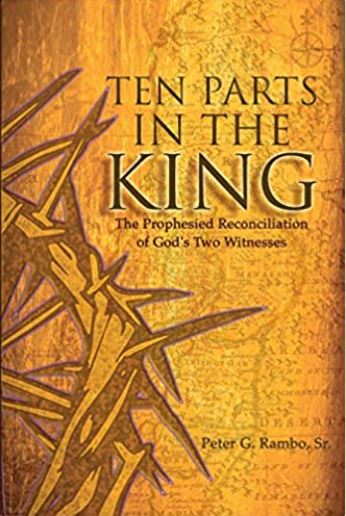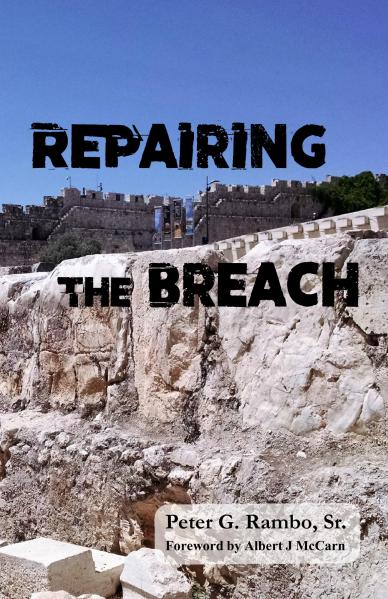A recent commenter on my blog asked the question, “Should Christians celebrate Passover?” While this is certainly a controversial topic, it is absolutely one that needs to be visited on a regular basis, and the answer needs to be Scriptural, not based on man’s traditions and doctrines.
 I will seek, in a short post, to demonstrate that Scripture clearly points Christians to celebrating Passover. Numerous links to expanded explanations in previous blog posts will be provided.
I will seek, in a short post, to demonstrate that Scripture clearly points Christians to celebrating Passover. Numerous links to expanded explanations in previous blog posts will be provided.
The early chapters of Exodus recount the miraculous redemption of Israel from Egypt. Central to the story is the celebration of Passover ‘as a sign’…’on your hand and on your forehead.’ (13:9) As part of the commandment, the Lord (YHVH) states clearly, multiple times, that Passover is an ordinance that is to be celebrated annually, forever. Here are a few verses from Exodus 12 and 13:
Ex. 12:14 ‘Now this day will be a memorial to you, and you shall celebrate it as a feast to the Lord; throughout your generations you are to celebrate it as [a]a permanent ordinance.
Ex. 12:24 And you shall observe this event as an ordinance for you and your children forever.
Ex. 13:10 Therefore, you shall keep this ordinance at its appointed time from [a]year to year.
Clearly, from these verses and their surrounding context, someone is supposed to be keeping Passover every year! But, who?
Both Judaism and Christianity (religions) teach that Passover is only for the Jews and converts to Judaism, but is that what Scripture teaches?
The Apostle Paul said,
Be imitators of me, just as I also am of Christ.
Therefore, we must ask the question, “What was Christ’s example?”
He perfectly kept the Torah and that included all of the Feasts of the Lord! In fact, Matthew’s recounting of Yeshua’s (Jesus’) last meal clearly connects His breaking of bread and drinking of the cup with Passover. He is not instituting some new tradition, rather He is imbuing it with deeper significance! Please read Matthew 26:17-30. Yeshua is keeping Passover!
What then was Paul’s example of imitation? He kept the Feasts of the Lord!! In fact, Paul’s example was that of keeping the whole of Torah! In I Corinthians 5 he clearly instructs the keeping of Passover!
I Cor. 5:7 Clean out the old leaven so that you may be a new lump, just as you are in fact unleavened. For Christ our Passover also has been sacrificed. 8 Therefore let us celebrate the feast, not with old leaven, nor with the leaven of malice and wickedness, but with the unleavened bread of sincerity and truth.
But, why would Paul do that, besides his desire to imitate Christ?
The simple answer is that Paul understood Yeshua’s mission and ministry. I could write a whole book right here, but for brevity’s sake, I will throw some pieces out here to help you begin a trail of searching the Scriptures.
Yeshua, by His own mouth, came for the ‘lost sheep of the House of Israel.’ This gives us clarity when, during the fateful Passover meal previously mentioned, Yeshua invokes the connection of His blood to the New Covenant, He is leading us to Jeremiah 31:31-34:
31 “Behold, days are coming,” declares the Lord, “when I will make a new covenant with the house of Israel and with the house of Judah, 32 not like the covenant which I made with their fathers in the day I took them by the hand to bring them out of the land of Egypt, My covenant which they broke, although I was a husband to them,” declares the Lord. 33 “But this is the covenant which I will make with the house of Israel after those days,” declares the Lord, “I will put My law (TORAH) within them and on their heart I will write it; and I will be their God, and they shall be My people. 34 They will not teach again, each man his neighbor and each man his brother, saying, ‘Know the Lord,’ for they will all know Me, from the least of them to the greatest of them,” declares the Lord, “for I will forgive their iniquity, and their sin I will remember no more.”
Notice the details of the New Covenant:
- It is with two specific groups
- It is NOT with the Gentiles
- It writes TORAH on the hearts
- It is not yet fulfilled!! (v. 34, men are still teaching their neighbor/brother)
We can confirm this understanding by looking at Ezekiel 37:24-28 and recognize that this unfulfilled prophecy details exactly what is going to happen in the future:
Ezekiel 37:24 “My servant David will be king over them, and they will all have one shepherd; and they will walk in My ordinances and keep My statutes and observe them. 25 They will live on the land that I gave to Jacob My servant, in which your fathers lived; and they will live on it, they, and their sons and their sons’ sons, forever; and David My servant will be their prince forever. 26 I will make a covenant of peace with them; it will be an everlasting covenant with them. And I will [a]place them and multiply them, and will set My sanctuary in their midst forever. 27 My dwelling place also will be with them; and I will be their God, and they will be My people. 28 And the nations will know that I am the Lord who sanctifies Israel, when My sanctuary is in their midst forever.”’”
Notice the details of this future prophecy:
- The (good) shepherd, Yeshua, son of David will be king
- He and his people will dwell in the Land
- They will obey the Torah, even the statutes and the ordinances
- Passover is an ordinance
- Other prophecy promises we will obey the ordinances in the latter days
- Yeshua will eat the Passover in the Kingdom!
- His sanctuary will dwell in their midst (Eze. 40-48; Rev. 21)
So, when Paul declares that believers in Messiah are ‘formerly Gentiles’ and now ‘have been brought near by the blood of Messiah’ and have been made members ‘of the commonwealth of Israel’ he is invoking very specific language that explains why we are to be keeping Passover. ‘Aliens and strangers,’ were not allowed to keep Passover according to Exodus 12:43-45, however, Paul’s argument is,
Eph. 2:19 So then you are no longer strangers and aliens, but you are fellow citizens with the [a]saints, and are of God’s household,
Therefore, Paul tells us, as previously pointed out, that we not only are to ‘keep the feast (Passover)’ but that we are to be imitators of Christ in doing so! It is time to get the leaven out and walk in the footsteps of Messiah Yeshua.
Passover, according to most calendars, occurs this year on the evening of April 11, 2017. If you need a quick overview and guidance, see How to: Messianic.
For additional reading, consider these posts:




















































































































Pingback: Should Christians celebrate Passover? I say EVERYONE who follows Yeshua and the Father’s commandments! | born 4 such a time as this
YES! There are a myriad of good reasons why Christians can joyfully observe the Passover,
even for those of us who are in church communities. My perspective is as a Black Pentecostal
believer (a descendant of African Hebrews on both sides of the mishpochah) who celebrates Pesach as a vital part of Holy Week worship. Whether observed in a home, church or community setting, the very actions of Passover celebration–using the five senses to tell the biblical stories of redemption in the Old and New Testaments–tend to have a TRANSFORMATIVE EFFECT upon the participants. This paschal “worship-at-the-table” is a unique festival, deliberately designed
to have us interact not only with the biblical texts, but also with each other. We can talk,
engage others and explore the Word of God in a joyous, yet intimate setting–and literally
feast upon the symbols of redemption, the ritual foods that connect us to the biblical events.
1. We embrace Passover, but the Passover also embraces US, as we literally “walk through the Bible” and “eat our way” through the Word of God. We are forced to think about oppression in all its forms; we learn what YAHWEH Elohim thinks about injustice and how human beings made in His image OUGHT to be treated; we are challenged to respond to human suffering as followers of the Lamb, the “Man of sorrows, acquainted with grief.” (Isaiah 53) We confront not only our
past oppression of the horrors of slavery and Jim Crow segregation; we are forced to confront
the myriad forms of human trafficking, sexual slavery and brutal political oppression, carried
out in nations large and small, today. We also confront the fact that our brothers and sisters in
any lands do not enjoy the freedom to worship God and are actively persecuted for doing so.
The very ritual actions of the Passover Seder demand not only the participation of the
worshipper, but also enable the participants to comprehend what our Creator wants us
think and do about human suffering.
2. Passover forces us to confront how nations and governments sin, and our own individual
sins of omission–what we OUGHT to have done–as well as our sins of commission–what
we should NOT have done in our lives. In both the Exodus story and the Gospel story,
redemption always comes as the direct action of YAHWEH, Who provides a lamb to spare
us from divine judgement. Seeing, touching and tasting that roasted lamb meat drives home
the reality of the awful cost of redemption–our freedom is bought at the cost of the Lamb.
3. Those who prepare paschal meals are transformed as well–we want to share the joys of our celebration as we remember how God redeemed us from Egypt and redeemed us from sin, death and eternal destruction through the Resurrected Lamb of God. The biblical tradition of extending hospitality to the “stranger, widow and orphan among you”–as recorded in the Torah–transforms those who prepare the foods and extend the invitation.We remember to “be careful to entertain
strangers, for some have unknowingly entertained angels.” (Hebrews 13:2)
The simple Black spirituals we sing–
“Drinking of the wine, wine, wine;
Drinking of the wine–O my Lord!;
I’ll be there ten thousand years,
Drinking of the wine!”
and the Communion hymn sung in many of our churches, the gracious invitation to the
Lord’s Supper–
“Come and dine,” the Master’s calling–“come and dine!”
You may feast at Jesus’ table all the time;
Well, He fed the multitude, turned the water into wine,
Hear the Master calling: “Come and dine!”
remind us to share our paschal feast not only among ourselves, but to extend that invitation
to our families, friends, neighbors, homeless folks and immigrants, people who “don’t look
like me.”
I have been privileged to design my own Pesach seder and conduct this in homes and
churches since 1985, when I first introduced the Christian Year and the Shalosh Regalim
to my choristers, when I had a children’s choir ministry. Watching little eyes “connect” to the
Exodus story and Last Supper narratives convinced me that God is the ultimate “audio-visual instructor”, who helps us to remember “His mighty acts” (Psalm 150:2) through the most
basic human action–the act of eating food. Passover celebration transforms the celebrators
in a multitude of ways, and every Holy Week becomes for us, the Passover of the Resurrection,
the joyous, exuberant Double-Festival of Freedom that strengthens our pilgrimage
to the New Jerusalem, the “city not made by hands, whose builder and maker is God.”
NEXT YEAR IN THE NEW JERUSALEM!
LikeLiked by 1 person
Thank you for your wonderful, well thought out response. You raise a number of excellent points!
It is significant that our Father is a multisensory Elohim that incorporates “touch-taste-see’ throughout His instructions (Torah) and when we come as little children we experience so much more than Western thinking knowledge divorced from existential reality.
I would like to talk to you further if you would be so kind as to email me through our ‘Contact Us’ page.
Shalom and blessings in Messiah.
LikeLike
OK, Bro. Rambo! I would be happy to correspond with you…have a blessed and Joyous
Pesach and Festival of Freedom! We’ll be doing our Passover Seder as the highlight of
our Palm Sunday celebration, the start of Holy Week and the Passover of the Resurrection.
Chag Sameach to you and your family and shul family! 🙂
LikeLiked by 1 person
Pingback: Messiaans Pesach 2017 en verharde harten | Bijbelvorser = Bible Researcher
Paul taught Christians to keep Passover and Pentecost.
“Paul then, entering his house and gathering together the faithful there, speaks to them concerning the Passover and the Pentecost, reminding them of the New Covenant of the offering of bread and the cup; how that they ought most assuredly to celebrate it during the days of unleavened bread, but to hold fast the new mystery of the Passion and Resurrection. For here the Apostle plainly teaches that we ought neither to keep it outside the season of unleavened bread, as the heretics do, especially the Phrygians, nor yet on the other hand of necessity on the fourteenth day: for he said nothing about the fourteenth day, but named the days of unleavened bread, the Passover, and the Pentecost, thus ratifying the Gospel.”
Pionius. (trans. 1889). Life of Polycarp. In J. B. Lightfoot (Ed.), The Apostolic Fathers (Vol. 3.2, pp. 488-506). http://www.tertullian.org/fathers/pionius_life_of_polycarp_01_text.htm
Christians kept Passover and unleavened bread week.
“All these (Philip and his daughters, John, Polycarp, Thraseas, Sagarius, Papirius, Melito, the bishops of Asia, et. al.) observed the fourteenth day of the Passover according to the Gospel, deviating in no respect, but following the rule of faith. And I also, Polycrates, the least of you all, do according to the tradition of my relatives, some of whom I have closely followed. For seven of my relatives were bishops; and I am the eighth. And my relatives always observed the day when the people put away the leaven.”
Eusibius. (trans. 1890). Church History (Book 5, chapter 24:6). In Arthur Cushman McGiffert, From Nicene and Post-Nicene Fathers (Vol. 1). Philip Schaff & Henry Wace (Eds.). Buffalo, NY: Christian Literature Publishing Company. http://www.ccel.org/node/70
LikeLiked by 1 person
Reblogged this on Jonathan's docs and commented:
Paul taught Christians to keep Passover and Pentecost.
“Paul then, entering his house and gathering together the faithful there, speaks to them concerning the Passover and the Pentecost, reminding them of the New Covenant of the offering of bread and the cup; how that they ought most assuredly to celebrate it during the days of unleavened bread, but to hold fast the new mystery of the Passion and Resurrection. For here the Apostle plainly teaches that we ought neither to keep it outside the season of unleavened bread, as the heretics do, especially the Phrygians, nor yet on the other hand of necessity on the fourteenth day: for he said nothing about the fourteenth day, but named the days of unleavened bread, the Passover, and the Pentecost, thus ratifying the Gospel.”
Pionius. (trans. 1889). Life of Polycarp. In J. B. Lightfoot (Ed.), The Apostolic Fathers (Vol. 3.2, pp. 488-506). http://www.tertullian.org/fathers/pionius_life_of_polycarp_01_text.htm
Christians kept Passover and unleavened bread week.
“All these (Philip and his daughters, John, Polycarp, Thraseas, Sagarius, Papirius, Melito, the bishops of Asia, et. al.) observed the fourteenth day of the Passover according to the Gospel, deviating in no respect, but following the rule of faith. And I also, Polycrates, the least of you all, do according to the tradition of my relatives, some of whom I have closely followed. For seven of my relatives were bishops; and I am the eighth. And my relatives always observed the day when the people put away the leaven.”
Eusibius. (trans. 1890). Church History (Book 5, chapter 24:6). In Arthur Cushman McGiffert, From Nicene and Post-Nicene Fathers (Vol. 1). Philip Schaff & Henry Wace (Eds.). Buffalo, NY: Christian Literature Publishing Company. http://www.ccel.org/node/70
LikeLiked by 1 person
Thanks for sharing more historical data on this topic! It is helpful to have such meticulous research into early church customs in the Mediterranean world during the first few
centuries. Joyous Pesach to you and yours!
LikeLiked by 1 person
Pingback: Taste and see that the Lord is good!! | natsab
Hey, Pete. Just strolling around your blog today. Safe and well. Greetings to all of you. s
LikeLiked by 1 person
Shalom. Same here.
Writing a Passover article right now that you may find very interesting. Posting in the next couple days. ..
LikeLike
Pingback: Rethinking Passover/Unleavened Timing | natsab